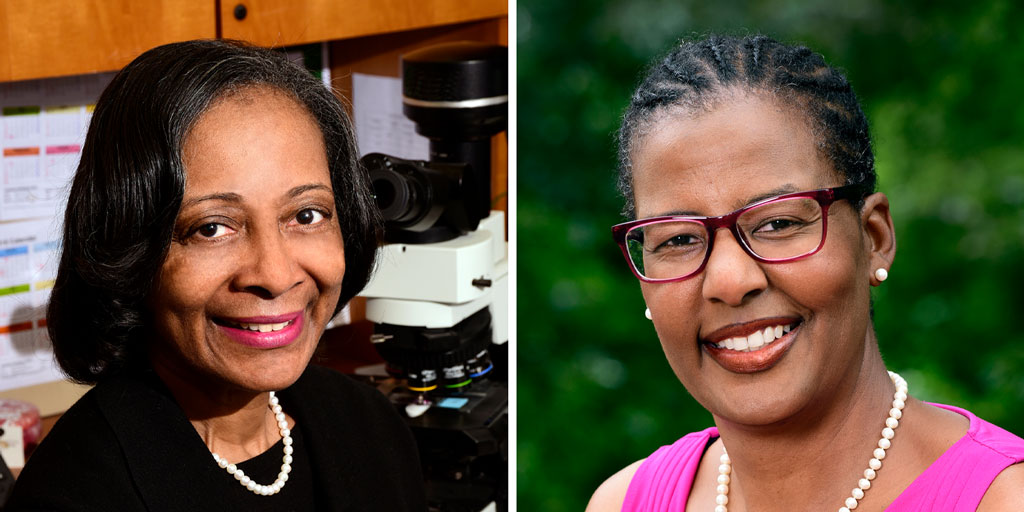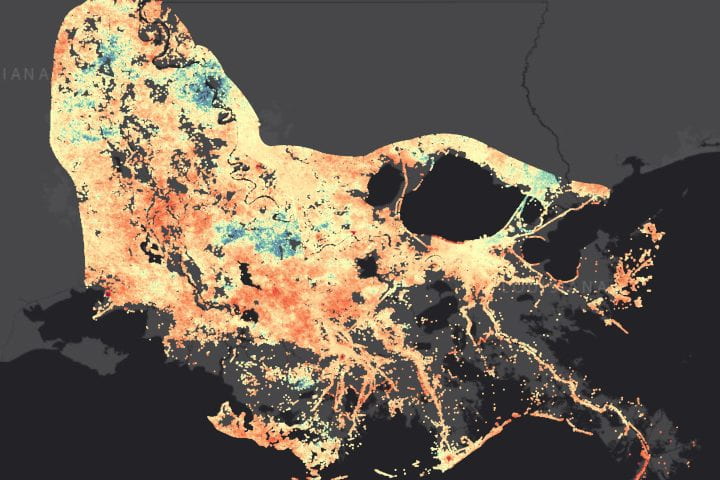Adding to its list of initiatives to address environmental racism, environmental health disparities (EHD), and issues related to environmental justice (EJ), NIEHS hosted a workshop on Dec. 10 titled “Addressing Racism as a Public Health Issue Through the Lens of Environmental Health Disparities and Environmental Justice: From Problems to Solutions.”
The virtual gathering drew more than 700 attendees and offered shared opportunities for learning and dialogue among staff at NIEHS and other federal agencies; grassroots organizations; and members of the community. The workshop included keynote presentations and panel discussions that featured nationally and internationally known EJ leaders, including renowned advocates from North Carolina.
Finding collaborative solutions
Darlene Dixon, D.V.M., Ph.D., a scientist in the Mechanistic Toxicology Branch of the NIEHS Division of the National Toxicology Program, and Robin Arnette, Ph.D., science editor in the institute’s Office of Communications and Public Liaison, co-chaired the EJ Workshop Planning Committee (see first sidebar). NIEHS members of the committee are part of a larger working group at the institute known as the Environmental Health Disparities and Environmental Justice (EHD-EJ) Faculty (see second sidebar).
‘The goal of the workshop was to find collaborative solutions to environmental health disparities and environmental justice issues that affect disproportionately impacted communities,‘ Dixon said. ‘It is the beginning of a long and hopefully fruitful partnership.’
A day-long event
The workshop agenda was divided into four sessions, with short breaks. After lunch, participants were treated to an interactive trivia session called ‘Know Your EJ.’ The workshop was packed with presentations and discussions, so there wasn’t time to answer all the questions that attendees proposed. Dixon said the questions and answers will be posted to the workshop website in early 2022, along with video recordings of the workshop presentations.
Session one featured an historical overview of EJ and its consequences with talks by well-known leaders including Nancy Krieger, Ph.D., from the Harvard T.H. Chan School of Public Health; Robert Bullard, Ph.D., from Texas Southern University; and Peggy Shepard, from WE ACT for Environmental Justice.
 The workshop brought together community members; staff and scientists from NIEHS and other federal agencies; and academic researchers to examine racism as a public health issue. (Image courtesy of NIEHS)
The workshop brought together community members; staff and scientists from NIEHS and other federal agencies; and academic researchers to examine racism as a public health issue. (Image courtesy of NIEHS)North Carolina-based speakers for session two were heavily involved in organizing the workshop. They included Crystal Cavalier-Keck and Jason Keck from 7 Directions of Service; Naeema Muhammad from the North Carolina Environmental Justice Network (NCEJN); and Omega Wilson, Brenda Wilson, and Ayo Wilson from the West End Revitalization Association (WERA).
They presented information on several key topics, including health inequities faced by indigenous populations, negative effects of living near concentrated animal feeding operations, and fighting for basic human amenities and better infrastructure for people of color. A panel discussion followed.
‘It was a good feeling to have a seat at the table, to be included in the discussion and give our indigenous points of view that have been historically silenced,’ said Cavalier-Keck.
Community-engaged research
In the afternoon, discussions expanded to include important national topics. During session three, EJ academic researchers and their community partners described how they work together to build authentic partnerships in New York City, Detroit, and indigenous communities in New Mexico and Alaska. Session four featured an extended panel discussion.
‘It was an honor to play a small role in this important event,’ said Amy Schulz, Ph.D., from the University of Michigan School of Public Health. ‘I look forward to seeing the work continue.’
NIEHS in it for the long haul
During his closing remarks, NIEHS and National Toxicology Program Director Rick Woychik, Ph.D., reiterated the institute’s commitment to advance EJ research and better understand the approaches that will help communities of color deal with decades of health inequities. He noted that working with others is vital to addressing these complex, multisectoral problems.
‘I am charging the EHD-EJ Faculty to come up with creative, innovative recommendations to bring to me and senior leadership at NIEHS,’ said Woychik. ‘I am asking that the EHD-EJ Faculty consider partnerships with other NIH institutes and other federal agencies supporting work in this area.’
Source link
factor.niehs.nih.gov



